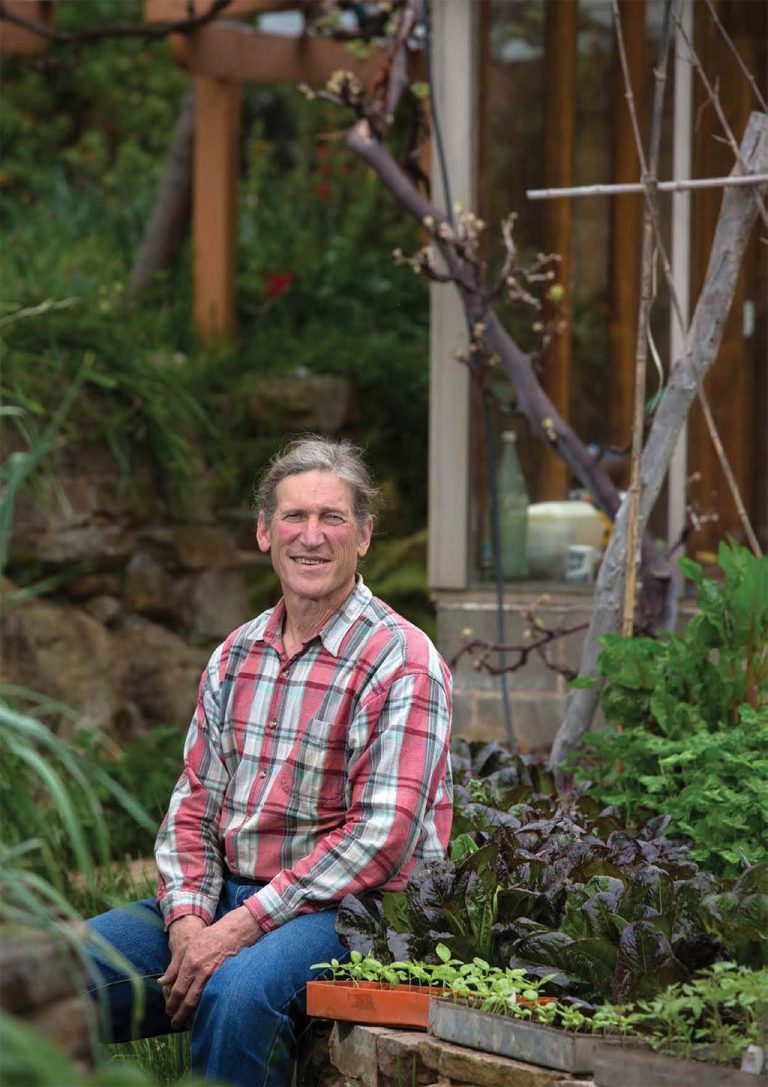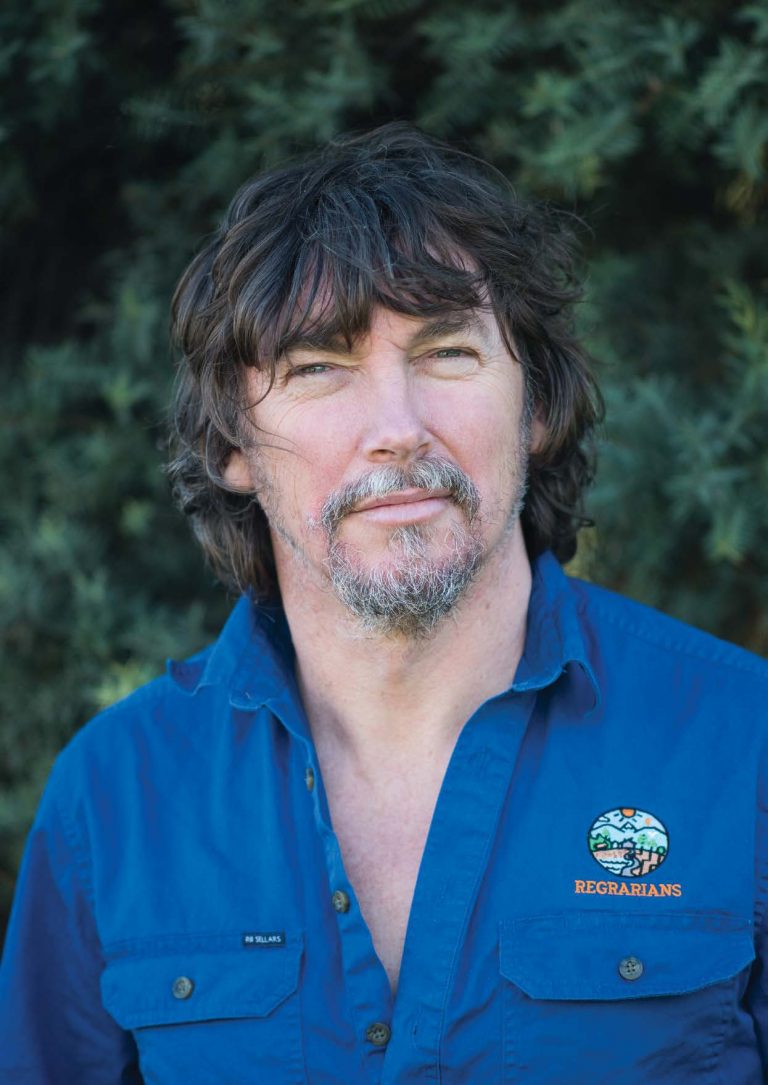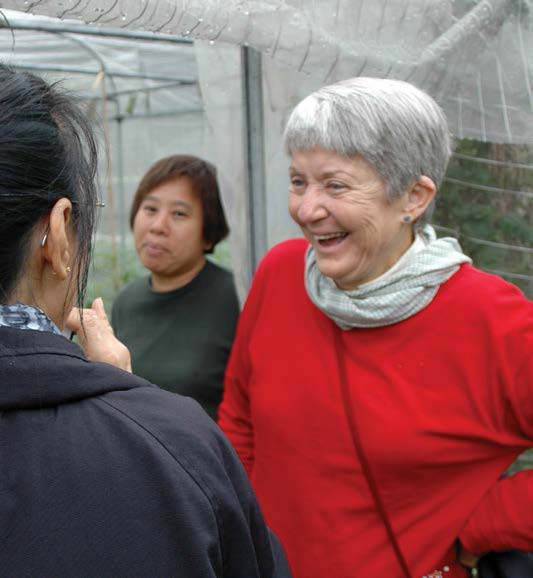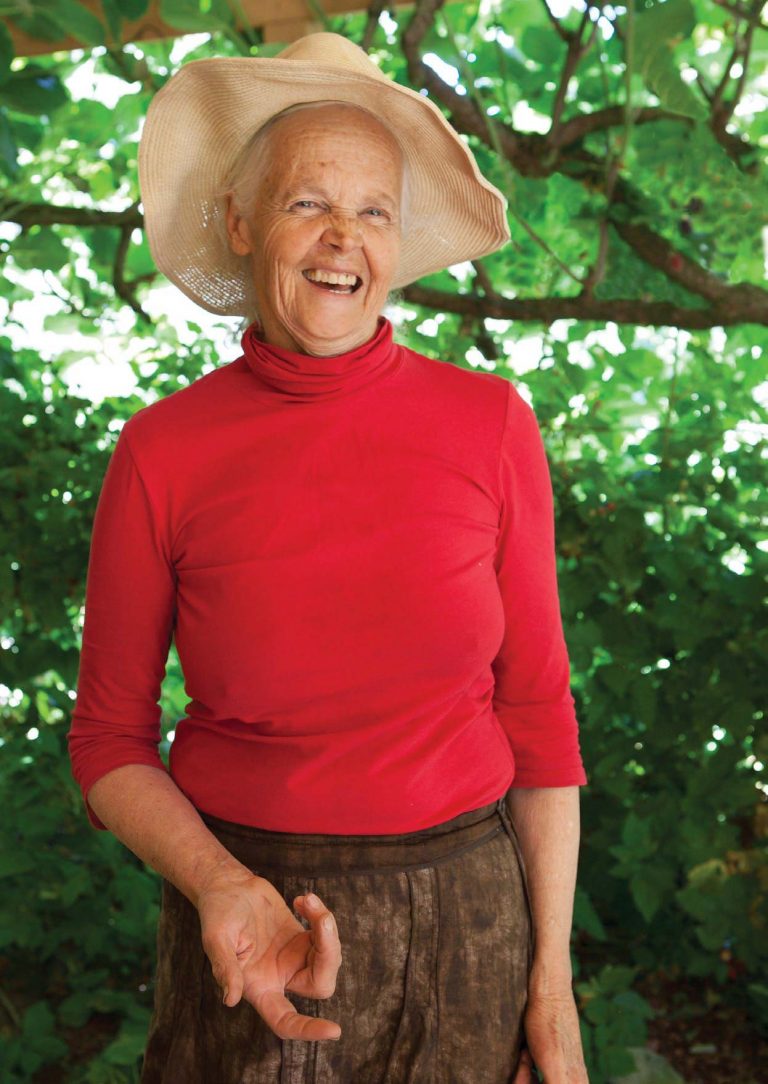David Holmgren

David Holmgren is a thinker. David not only questions the status quo, but redesigns it and creates an alternative. In the 70s, faced with a world that he questioned, he came up with the permaculture concept, along with his mentor Bill Mollison.
Bill immediately took the concept and travelled the world, teaching it to thousands of people worldwide, making himself and permaculture a household name. David however felt that the permaculture design principles needed testing. He turned his focus to building his skills, and testing and implementing the principles they’d created.
The result is David’s home, Melliodora, an inspiring and beautiful working example of permaculture on 1 hectare of intensively farmed land. There you’ll find a passive solar mud-brick home and office, a team of willing workers and a well-integrated selection of trees, animals, vegetables, fungi and bees. Along with his partner Su Dennett [who was profiled in Pip issue 5] and their son Oliver, David has developed Melliodora into one of Australia’s best-known permaculture demonstration sites, hosting tours and workshops for hundreds of people every year. Although it’s affected by frost and at risk of bushfires, Melliodora is at the core of David’s determination to demonstrate that permaculture works, even in tough conditions.



